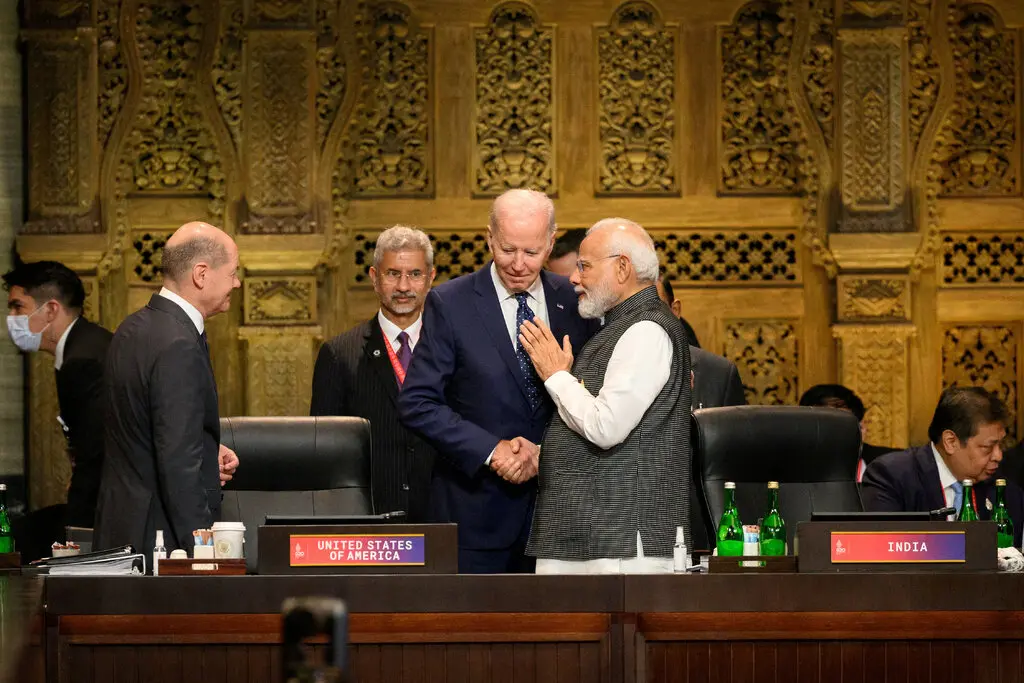The annual Group of 20 summit, which convenes world leaders in pursuit of global economic coordination, is set to begin this weekend in India. As leaders gather in New Delhi, questions loom over the G20’s ability to translate lofty goals into tangible outcomes. The summit’s agenda encompasses pressing issues such as climate change, economic development, debt burdens in low-income countries, and inflation stemming from Russia’s war in Ukraine. The key question on everyone’s mind: Can the G20 make meaningful progress in addressing these challenges and deliver concrete results?
Historically, the G20’s joint declarations have often amounted to little more than resolutions with no clear consequences when member nations fail to meet their commitments. One glaring example was the 2021 summit in Rome, where G20 leaders pledged to limit global warming through “meaningful and effective actions,” with a specific focus on ending financing for coal power plants overseas. However, this commitment omitted addressing domestic coal investments. Shockingly, global coal-fired power generation hit a new peak in 2022, despite scientific consensus and G20 statements emphasizing the urgency of ending coal use.
The G20’s origins trace back to a meeting of finance ministers in the late 1990s, with an annual meeting of world leaders added after the global financial crisis in 2008. It was conceived as a more flexible and inclusive alternative to the Western-led Group of 7 (G7) nations, aimed at safeguarding the global economy. In its early years, the G20 garnered praise for stabilizing the financial system by implementing spending measures worth $4 trillion and instituting vital bank reforms to rebuild trust during the 2008-2009 global financial crisis.
A standout moment for the G20 occurred during the 2016 summit in China, where President Barack Obama and Chinese leader Xi Jinping announced their countries’ commitment to the Paris Agreement on climate change. In 2021, the G20 supported a significant tax overhaul, including a global minimum tax of at least 15 percent for each country and rules compelling large global corporations like Amazon to pay taxes where their products are sold. This move was anticipated to boost government revenue and curtail tax havens for corporations, but actual progress has been slow.
Critics argue that the G20’s formation was flawed, with membership decisions often influenced by Western finance officials and central bankers. According to Robert Wade, a political economy professor at the London School of Economics, inclusion and exclusion were decided arbitrarily. Argentina, for instance, became a member despite not being among the world’s largest economies due to political connections, sparking concerns about the lack of representational procedures within the organization.
Over time, G20 summits have transformed into platforms where conflicting forces challenge the established post-World War II order. Increasing dissatisfaction with globalization and free trade has hindered consensus among G20 members on how to navigate the world’s evolving dynamics. Stewart Patrick, director of the Global Order and Institutions Program at the Carnegie Endowment for International Peace, noted that in a fractured global economy with nations pursuing their interests, adapting to rules and institutions designed for a different era becomes a pressing concern.
Despite its challenges, few critics advocate for the elimination of the G20. Instead, they argue for the modernization of international institutions. Experts like Dani Rodrik and Stephen M. Walt have highlighted the inadequacy of the existing Western-oriented approach in addressing contemporary international power dynamics. Calls for reformulated G20 membership, incorporating economic powerhouses and rotating smaller nations, have been proposed. Additionally, the G20 could play a pivotal role in shaping a “post-neoliberal” order by discussing how to balance the benefits of trade with the risks associated with an unrestrained free-market system.
As the G20 summit in India unfolds, the world watches with anticipation, hoping for meaningful progress in addressing critical global challenges. While the G20 has faced criticism for its past shortcomings, its potential for transformation and adaptation remains a beacon of hope in navigating an ever-evolving global landscape.


